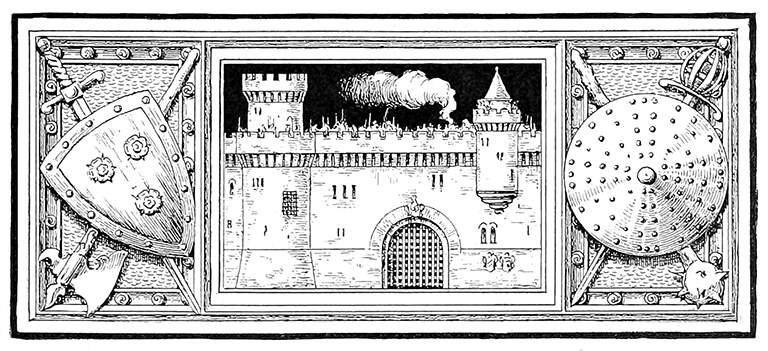Edit: Immediately upon publishing this post I was directed to this fantastic piece from Josh at Rise Up Comus. Alas, nothing is original, and indeed unbeknownst to me this is a recurrent issue in our space. I've decided to leave mine up because while his raises the same question as mine, I feel I contribute a little to the discussion.
I have been reading a fair number of TTRPG system and module reviews lately and it has sparked some thoughts. Many of the authors I am reading clearly haven’t played the games they’re reviewing. This is understandable, games take much longer to play than they do to read, one’s a social activity requiring at least one (if you’re lucky) other person, and the other’s a solo pursuit. And, echoing a thought from the seminal essay on this topic, the pace at which games are being published continues to outstrip the rate at which they could all ever possibly be played (and this rate has perhaps accelerated in recent years?).
All of this has prompted a question for me – do we need to play games to review them?
On the one hand, reviewers that haven’t played the games they review tend (in my experience) to place a lot of focus on the layout, art, presentation, and how the module reads – all things completely invisible to the other players at the table. These reviews also place emphasis on story, setting, lore, and writing quality, all valuable to have insight on, but with much less bearing on the gameplay than the game’s actual mechanics or the module’s structure.
Rationally, this makes sense to me: a game’s core mechanics are sometimes only one chapter out of ten, and so if I were to spread my commentary equally over the length of the book naturally I would de-emphasize the mechanics. But in my view, we’re in the hobby of playing role-playing games, and the priority should always be on the gameplay experience… and here the Author That Hath Not Played can only speculate; they have no first-hand experience to draw from.
Placing this in comparison with someone who is reviewing a system or module they’ve played for years – often the setting and lore are the last things to be brought up. They’re much more concerned with what the system enables them to do, or how much work a module required them to put in to actually run it.
In modules I find this particularly thorny to wrestle with: I think level design can be one of the most difficult realms of game design to interrogate superficially. It takes playtesting, and repeated playtesting, to see how a dungeon/encounter/puzzle holds up, and I’m not sure I would trust a food critic who didn’t taste their meals. I have read some pretty dodgy conclusions drawn from first-readings of modules: “it feels punishing”, “these mechanics seem finicky”, “there isn’t enough depth here”, all of which come up far too often for the lack of testing the reviewers have done.
I guess I always worry these reviews could miss integral gameplay elements, or overemphasise unimportant ones. You can’t see the invisible: it seems improbable to me that a reviewer would be able to spot the benefits of any emergent design without any playtime. There’s no actual experience with a gaming product that has been specifically designed to be played, and that seeds doubt in my mind.
On the other hand, the authors of these reviews are (usually) very experienced gamers! They know what a good module/game looks like and when it’s going wrong, thanks to real life gameplay experience with dozens of modules and games in the past. These in depth read-throughs or first impressions can help others who are maybe less experienced or have less time on their hands, to know when to even pick up a book in the first place. They help catapult worthy titles into the limelight where they will get played!
Also, the layout, art and story are all important. Modules are designed to be consumed by referees, and has been mentioned many times before, our hobby is as much about art and fiction as it is about gaming.
Some of these modules and zines which are either poorly designed for gameplay or not designed for it in the first place are still extremely valuable contributions to our vibrant culture. It wouldn’t completely surprise me if we one day discovered Mörk Borg had never actually been played by a single human being, ever, and the entire Mörk Borg subculture was simply a complicated but groundbreaking art exhibition. (I’m kidding, Mörk Borg is a great game and if you haven’t tried it you should.)
And I shouldn’t make out like these authors are leading us on. Most of them make sure to flag when they haven’t played a given game or module before, and make it clear to us they’re just sharing their impressions from a first read-through*. It’s only when they share these ‘impressions’ as damning gospel that I take issue.
I don’t think this is a question that needs answering. There is nothing wrong with sharing one’s impressions of a game or module, and coming from someone with experience and care it can be a great boon to the rest of the community. However, whenever I do see a review of a game that lacks actual time with the game in question, it does put me on my guard, and I think it would behoove you to do so as well. Read the reviews, use them as valuable vetting processes for finding the next game you want to play or run, but keep an eye out for conclusions being made for you.
*: I will note I have noticed this trend disappearing recently – more authors seem to be failing to mention when they have or have not played a game or module, and I would like to make a quiet request to the world at large for its return.
Further reading:






0 Comments:
Post a Comment